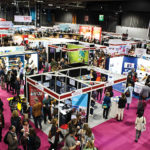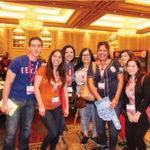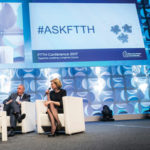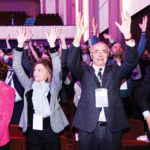
MEETING
The 2014 International Conference on Information Systems (ICIS) is expected to bring between 1,100 and 1,300 professors, doctoral candidates, and information-systems practitioners to Auckland, New Zealand, on Dec. 14–17. ICIS is the annual meeting of the Association for Information Systems (AIS), which has more than 4,000 members from 95 countries. More than 700 posters and papers will be presented at this year’s conference, and representatives from top companies such as Microsoft and IBM will be on hand to network with attendees.
CHALLENGES
As a global organization, AIS rotates the location of its annual meeting between its three member regions: The Americas; Europe, the Middle East, and Africa; and Asia and the Pacific. Recent ICIS host cities have included Milan, Orlando, Shanghai, and St. Louis. ICIS 2014 will be held at the University of Auckland Business School, in the dramatic, glass-fronted Owen G. Glenn Building, where lecture halls, computer labs, and workrooms surround an 85-foot-high atrium. “It’s very new, state-of-the-art, and everything inside is complimentary,” said Lise Fitzpatrick, AIS’s conference director. “We don’t have to pay room rental, we don’t have to pay for Internet, and we don’t have to pay for audiovisual.”
While Fitzpatrick couldn’t be happier with her choice of venue, there’s one thing the business school is missing: a kitchen. But she managed to find an off-site caterer who is up to the challenge of preparing room-temperature potables.
A bigger hurdle is the fact that Auckland means a long-haul flight — not to mention an expensive one — for many AIS members. Fitzpatrick’s post-event surveys have revealed those two factors as the most common reasons attendees say they won’t attend the next year’s conference. Pete Tinsley, CAE, AIS’s executive director, pointed out that the additional travel time needed to reach New Zealand could present a challenge for many attendees. “Our members are all academics, so they’re teachers,” he said, “and we’re approaching the end of the semester for most of them, depending on where they are in the world. Even with such time and travel challenges, our members find a way to attend each year.”
Indeed, Fitzpatrick is planning for 100 to 300 more attendees than usual, partly because Auckland is a convenient choice for many new AIS members. The association has seen membership grow in New Zealand, Australia, and China in recent years.
INITIATIVES
Tinsley sees Auckland’s gorgeous summer weather as a benefit that should outweigh travel headaches, especially since many attendees will add days on pre- or post-meeting to experience New Zealand’s natural beauty. ICIS 2014’s off-site social event will be held at the harbor-side Viaduct Events Centre, which is walkable from the business school and is one of the newest event spaces to open in bustling Auckland.
Bearing in mind that attendees come from all over the world, AIS has partnered with EventMobi to design its conference app. Fitzpatrick has created several event apps through the company’s interface, and this year she’ll be taking advantage of the alert and reminder features that can be built in. But AIS hasn’t yet decided whether to incorporate social-media-sharing features into the app. Since in-person networking is one of the biggest draws for AIS’s global membership, attendees might not want to stay plugged in to their networks back home. “Ironically,” Tinsley said, “even though we are a technology-focused association, our members prefer meeting face-to-face and talking over a cup of coffee rather than communicating just through electronic means.”
Convene’s Pre-Con/Post-Con series asks meeting planners about their challenges and how they intend to address them (Pre-Con), and then circles back around after the meeting has occurred (Post-Con) to see how well they worked out.



